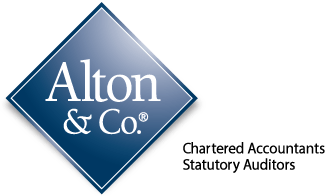Everyone wants to be paid for the work they do in the most tax-efficient manner. It’s something that we help clients with all the time.
The same is true for company directors who stand to gain from a careful profit extraction plan through a mix of salary, dividends and pension contributions.
The method that will work for you might be different to someone else – you need to spend some thought and time planning how to extract your company profits.
Salary
Taking out profits from your limited company in the form of salary is one of the more obvious ways to pay yourself, so we’ll start there.
At the very most, directors should aim to keep their pay within their annual personal allowance, which is £12,570 for the 2021/22 tax year.
But we recommend keeping your salary below £8,840, the secondary threshold of Class 1 National Insurance contributions (NICs). You won’t have to pay employers’ NICs at 13.8%, but you will accrue qualifying years towards state benefits if you pay yourself more than £6,240 in 2021/22.
A low salary can also be deducted from your company’s gross profit before your corporation tax bill is calculated. The lower your company’s profits, the less corporation tax it has to pay.
You just have to remember that other sources of personal money, such as savings, rent you might receive from tenants and a side job, may also count as income, so make sure you factor these into any income tax calculations.
Dividends
You’ll need another profit extraction method to fund your lifestyle, which is where dividends come in. But, you need to be aware of how they are taxed.
The same three income tax bands apply, but different dividend tax rates apply to each of them.
Fortunately, each band is taxed at a lower rate than their income tax counterparts, making dividends more tax-efficient than salaries.
As of the 2021/22 tax year, dividends are taxed in the following manner:
- basic rate (up to £34,500): 7.5%
- higher-rate taxpayers (up to £150,000): 32.5%
- additional-rate taxpayers (over £150,000) 38.1%.
However, you need to remember that all three dividend tax rates will rise by 1.25% from April 2022 as part of the health-and-social-care levy.
So, from April 2022 onwards, the dividend tax rates will be:
- basic rate: 8.75%
- higher rate: 33.75%
- additional: 39.35%.
Everyone is entitled to receive £2,000 in dividends completely tax-free, meanwhile, and it’s only the excess that is taxable.
You can only pay out dividends when your company is making a profit. A salary, on the other hand, can still be paid out during a period of loss.
Pension contributions
Contributing to a pension as the owner of a limited company is also advisable, as you can treat your contributions as a business expense to offset against your corporation tax bill.
You can also make personal pension contributions through your company.
Although there is a £40,000 annual pension limit, there is no tax charge when you make a contribution.
You can also access and withdraw 25% of your pension pot tax-free, currently from the age of 55, with income tax charged at your marginal rate after that.
Get in touch with us to work out the most tax-efficient way to extract profits from your business.

